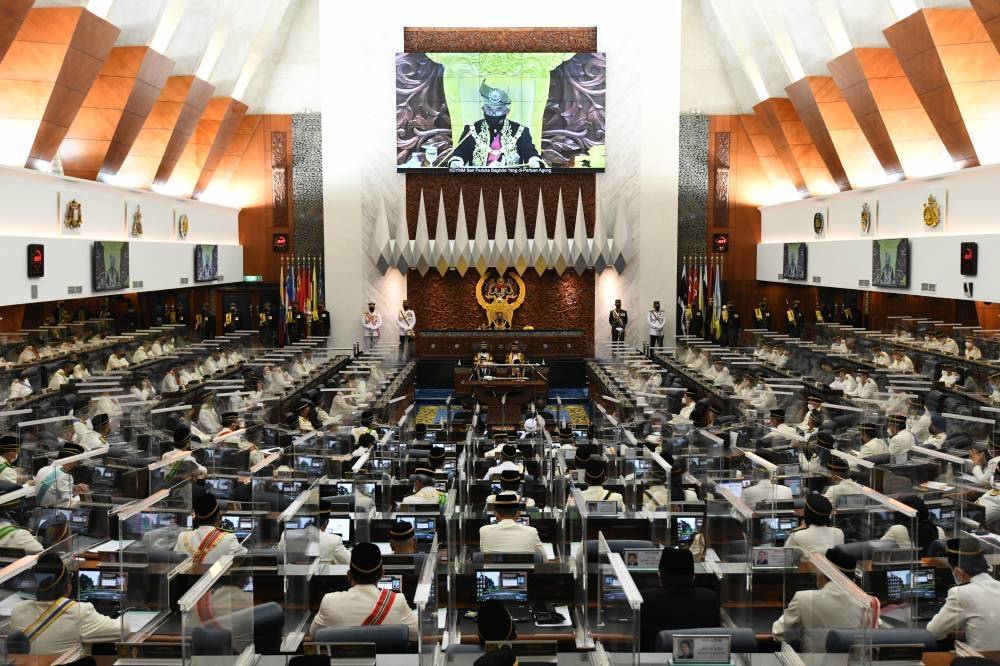Too early, immature for PN to reject draft MoU for MP allocation - Analyst
An analyst said that as the ruling party, the draft MoU naturally contains the political interests of the government, but it can still be negotiated until an agreement is reached.

KUALA LUMPUR - Perikatan Nasional (PN) has made an early and immature rejection of the Unity Government-proposed memorandum of understanding (MoU) relating to the allocations for opposition Members of Parliament (MPs), according to political analysts.
Prof Madya Dr Mohd Yusri Ibrahim of Universiti Malaysia Terengganu (UMT) said as the ruling party, the draft MoU naturally contains the political interests of the government, but it can still be negotiated until an agreement is reached.
"This is a normal process because even during the administration of the previous Prime Minister (Datuk Seri Ismail Sabri Yaakob), which included Pas and Parti Pribumi Bersatu Malaysia (Bersatu), the opposition at that time led by Datuk Seri Anwar Ibrahim was open to signing the Confidence and Supply Agreement (CSA) with the government, agreeing not to table any motion to change the government, and so on, until the next election.
"Therefore, PN, whether Pas or Bersatu, should already understand this (political interest) because they were once part of the government,” he told Bernama.
Prior to this, Opposition Leader Datuk Seri Hamzah Zainuddin confirmed that PN unanimously rejected the draft MoU for four fundamental reasons, alleging that it contradicts the Federal Constitution and that some conditions in the MoU could potentially affect the special rights of Malays and Bumiputeras.
Elaborating, Mohd Yusri said that if the MoU is successfully signed, it would hold significant meaning for the country as it could create stability in the political landscape, at least until the 16th General Election (GE16).
"...but it is somewhat disappointing that it failed halfway, especially when many are aware that other countries have already advanced in terms of their economy and other areas. We, on the other hand, continue to focus on politics, often neglecting the interests of the people and the country, which should be a top priority,” he said.
Sharing the sentiment, a Universiti Malaysia Perlis lecturer Muhammad Izmer Yusof, said the government could establish a task force to review and further discuss the terms of the MoU.
He said this is important to give the government the merit of good governance as promoted by the Prime Minister, and to avoid the perception that the government is "too ‘rigid” in practising democracy with the opposition.
"The government offers this MoU as a gesture of goodwill, even at the cost of PN’s principles. This is normal in politics. The government won’t offer a free ride because its priority is stability, which should be seen as a reciprocal exchange. After all, the Madani government is a progressive one.
"So, if this MoU is handled well and agreed upon, it will be a merit to the government's excellent governance, while the opposition will be able to get allocations and will be more tolerant of the government in the future,” he said.
Meanwhile, founder of Watanic Jurisprudence at the International Institute of Islamic Thought and Civilization, International Islamic University Malaysia (ISTAC-IIUM), Assoc Prof Datuk Dr Wan Ahmad Fauzi Hashim Wan Hussain, stated that any conditions in the MoU must foster the development of national identity in line with the spirit of the oath of citizenship in the First Schedule of the Federal Constitution, rather than calling for equality that contradicts the principles of sovereignty and supremacy of the Constitution.
"This is because the permitted equality cannot be interpreted as impartiality. Instead, equality refers to justice in the implementation of permissible discrimination as allowed by the Constitution.
"That is why anyone holding the reins of government is obliged to be fair to all citizens. Although the MoU mentions adherence to the Constitution, any terms that imply the elimination of discriminatory elements guaranteed through the provisions of Articles 3(4), 8(2), and 8(5) contradict Article 4 of the Constitution,” he added. - BERNAMA











